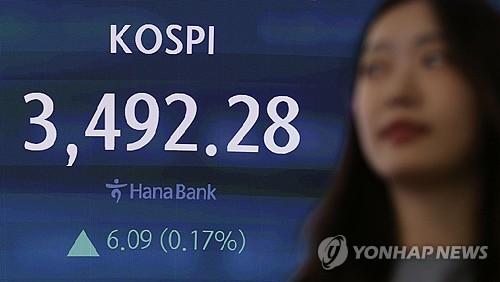(Seoul=Yonhap Infomax) When French Prime Minister François Bayrou pushed for fiscal austerity to reduce public debt, he faced strong backlash and ultimately called a confidence vote. After failing to secure parliamentary support, the French government collapsed.
The cabinet's downfall and the rise of far-right parties were fueled by the anger of the 30s and 40s generation. On French social media, the meme "Nicolas Qui Paie" ("Nicolas Pays") went viral—Nicolas symbolizing young, high-earning middle-class professionals.
France is known for imposing some of the highest income tax rates in Europe. High earners pay nearly half their annual income in taxes, and many are frustrated that their tax contributions flow into areas from which they receive little direct benefit.
In March, The Economist published an article titled "Who will speak for Henry?"—with "Henry" standing for "High Earner, Not Rich Yet." This term refers to those who earn a lot but are not yet wealthy. In the UK, HENRYs are a crucial tax base, yet policymakers largely ignore their needs. Despite shouldering a significant portion of the fiscal burden, they remain politically marginalized.
Since the term "HENRY" was first introduced in 2003, the annual income threshold has shifted depending on economic conditions, inflation, and region. In the US, HENRYs now typically refer to those earning over $130,000 per year.
The frustration of HENRYs and Nicolas—"No matter how hard I work, I can't accumulate wealth"—has evolved from tax resistance to a catalyst for political change, as seen in France. This sentiment is quietly spreading in South Korea as well.
South Korea's HENRYs voice similar complaints. For example, with an annual salary of 204 million won ($150,000), a monthly net income of 11 million won ($8,100), and annual net income of 132 million won ($97,000), total taxes paid amount to 72 million won ($53,000). Salaries in the 100–200 million won range ($74,000–$150,000) place earners among the top income brackets for regular employees, excluding chaebol (family-owned conglomerate) executives. Despite being single-income earners without property and raising children, they pay high taxes due to their income level and are excluded from most government benefits. Even after diligently saving for a decade, buying an apartment remains out of reach, yet they are often criticized for "complaining like the wealthy."
Conversely, those with lower reported incomes—even if from wealthy backgrounds—can access various benefits.
South Korea is rapidly becoming a super-aged society. Someone must pay taxes to support retirees, and many HENRYs fear that burden will fall on them. Their desire to grow assets intensifies. Real estate has become prohibitively expensive, and deposit savings have long failed to keep pace with inflation. As a result, most turn to investment—primarily equities.
Against this backdrop, the Lee Jae-myung administration has pledged to make the stock market a viable alternative to real estate, stating, "We will develop the securities market so that people can earn interim dividends and supplement their living expenses through stock investment." The government aims to shift wealth accumulation from property to equities, enabling citizens to invest in quality companies, earn financial income, and better prepare for retirement.
Globally, most HENRYs are salaried employees. The companies and industries where Korea's HENRYs work form the backbone of the KOSPI, South Korea's benchmark stock index. By investing in equities, they can share in the fruits of the companies they help build. The stock market needs HENRYs, and HENRYs need the stock market.

As the KOSPI approaches the historic 3,500 mark, domestic investors have not fully benefited. While foreign and institutional investors have reaped gains, local investors have largely remained on the sidelines. Although they trust the government's commitment to supporting the market, many believe that policy resolve alone cannot sustain further price increases.
Many are considering when to re-enter the market. Despite concerns that entering at current KOSPI levels could lead to losses—as has happened before—they still view equities as the most critical opportunity.
Ultimately, HENRYs will return to the market. The question is: in what spirit will they return? Will they come back reluctantly, burdened by frustration and cynicism, or will they return by choice, with hope and confidence? The challenge is to create a market that HENRYs choose to re-enter, not one they are forced back into. (Securities Editor)
sykwak@yna.co.kr
(End)
Copyright © Yonhap Infomax Unauthorized reproduction and redistribution prohibited.

